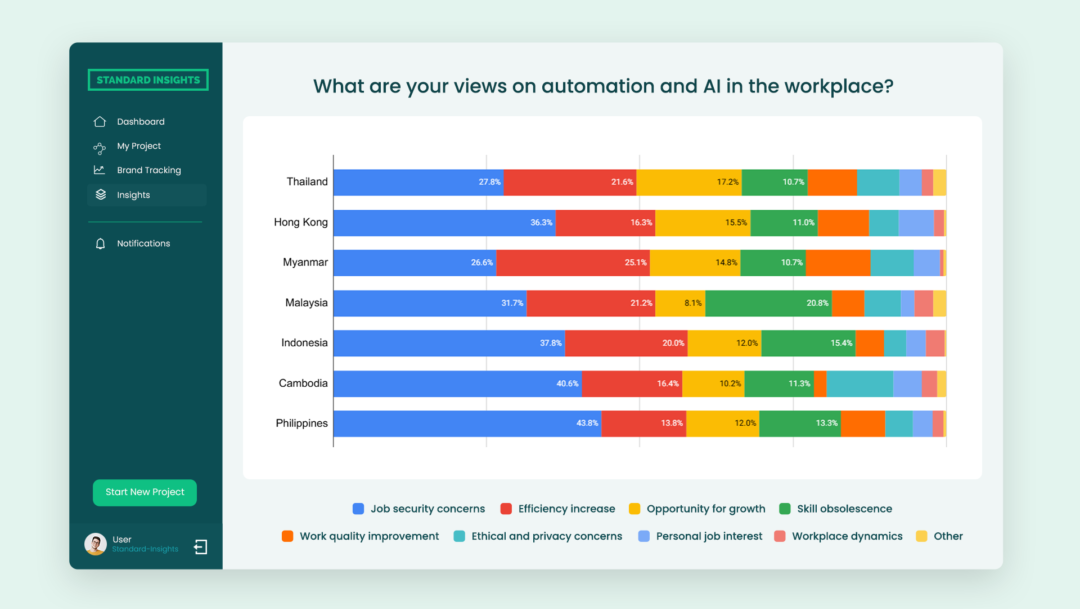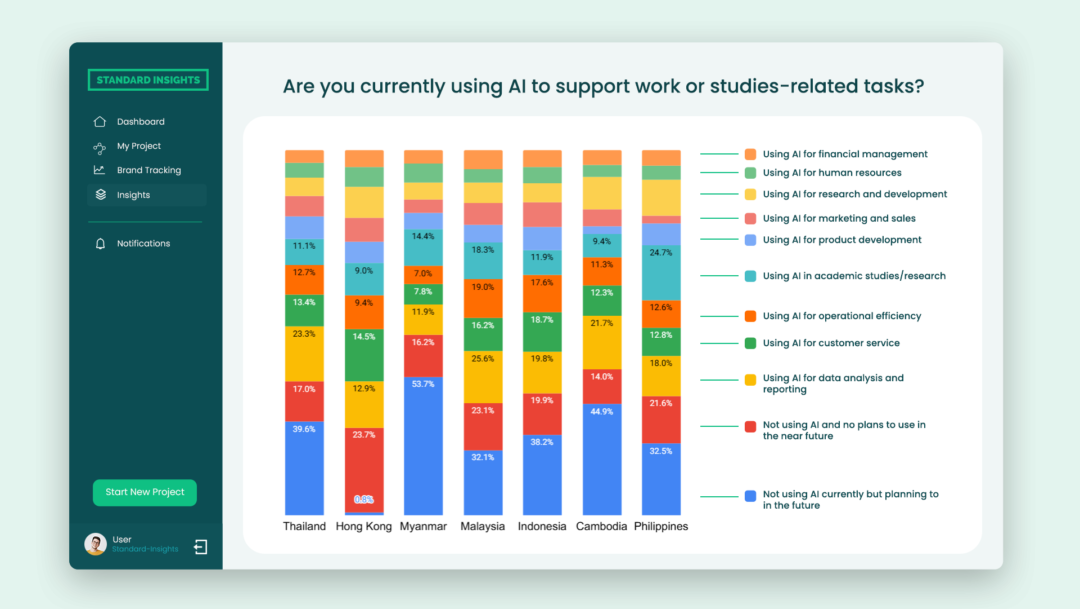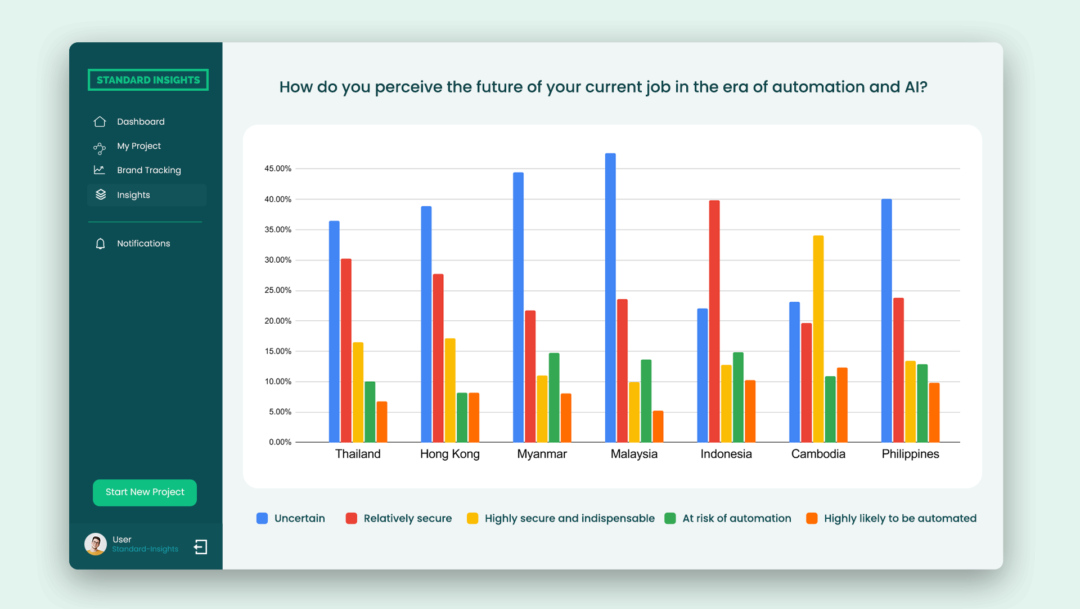Recently, AI has dominated tech conversations, but what about the everyday people? Are they using it, and what do they think about its impact on their careers?
In 2024, we conducted consumer surveys in various Asian countries, focusing on people’s attitudes towards AI. The surveys were conducted in Thailand, Hong Kong, Myanmar, Cambodia, the Philippines, Indonesia, and Malaysia seeking insights into three pivotal questions:
- What are your views on automation and AI in the workplace?
- Are you currently using AI to support work or study-related tasks?
- How do you perceive the future of your current job in the era of automation and AI?
In this article, we examine the survey findings, highlighting public opinions on artificial intelligence (AI) and automation in the workplace.
Views on Automation and AI in the Workplace
The survey results highlight that job security is the principal concern among respondents when considering the impact of AI, with 35.3% expressing apprehension about their future employment opportunities. This concern was notably pronounced in the Philippines (43.8%) and Cambodia (40.6%).
Despite these worries, the second most prevalent opinion was optimistic about the potential benefits of AI; approximately 17.5% of respondents believed that AI could enhance work efficiency. This viewpoint was consistent across all surveyed countries. However, significant differences emerged in other areas. For instance, respondents in Thailand, Hong Kong, and Myanmar generally viewed AI as an opportunity for professional growth. In contrast, participants from other countries expressed anxiety about the potential obsolescence of their skills, fearing that AI-driven changes could render their current skill sets irrelevant.
From a global perspective, these attitudes match trends in our consumer reports, where people increasingly prefer investing in education over other expenses in 2024. This shift towards ongoing skill development highlights the need to improve education and training programs to help workers prepare for an AI-driven future and reduce their concerns.

Current Usage of AI in Work or Studies
The surveys revealed varied levels of AI adoption across Asia, with many regions still in the early stages of integrating technology into daily tasks and professions. Approximately 55% of respondents do not currently use AI, and 18.6% have no plans to incorporate it.
Myanmar and Hong Kong, in particular, show the lowest usage rates, highlighting opportunities for increased AI awareness and accessibility.
Among those utilizing AI, applications vary but demonstrate significant trends in several areas:
- Data Analysis and Reporting are the most common uses, with 21.8% of respondents engaged, especially in Thailand, where the rate increases to 23.3%.
- Customer Service: Used by 13.5% of participants, with Indonesia leading at 18.7%. This indicates a growing use of AI to enhance customer interactions.
- Operational Efficiency: 12.8% of respondents use AI to boost efficiency, with Malaysia leading at 19.0%.
This data suggests that while adoption is uneven, there is clear evidence of AI’s growing impact in specific sectors.

Job Security in the Face of AI
Job security perceptions in the era of AI and automation show significant variation across different demographics and locations. In Cambodia, for instance, 34.1% of respondents feel their jobs are highly secure and indispensable. However, a comparable proportion, 34.8%, express uncertainty about their job security.
This sentiment of uncertainty is even more pronounced in Malaysia and Myanmar, where 47.6% and 44.5% of respondents, respectively, express concerns about their future employment due to AI and automation. Interestingly, despite these concerns, only 10% across the surveyed regions believe that their jobs are highly at risk.
These findings highlight the diverse outlooks on the impact of AI and automation on employment, indicating both optimism and apprehension among workers in different areas.

Conclusion
Our survey highlights a complex picture of AI in the workplace across Asia. While a significant number of people are concerned about their job security and the relevance of their skills in an AI-driven future, there is also noticeable optimism about the efficiency and opportunities AI might bring.
Methodology Note
We surveyed over 5,500 people from various Asian countries, including Thailand, Hong Kong, Myanmar, Cambodia, the Philippines, Indonesia, and Malaysia. The results provide a broad snapshot of current attitudes towards AI, rather than an in-depth analysis. For more detailed insights, future surveys should target specific groups and industries.




